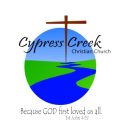ECCLESIOLOGICAL ETCHINGS
August 7, 2025
Brian McLaren is a wonderful voice in the current landscape of Christianity, specifically helping us look beyond what he calls a simple stage one faith, usually rooted in literalism and dualism. Brian doesn’t belittle this stage. In fact, in his book, “Faith After Doubt,” he talks about how stages are important. No one learns math starting with complex formulas. You need to learn your numbers even before you can begin adding numbers. But you want your accountant to have moved a little beyond basic arithmetic. Some churches have chosen, simply by their theology, to be a stage one (or simplistic) church. This is a stage where right and wrong are always black and white, where the minister’s interpretation of the Bible is not questioned, and people believe doubts are a sign of weakness or even failure. Many people spend their entire lives in a stage one church, but what I have heard over the years is how people stay in these churches, not because they really believe what’s being taught, but more so because of family history with the church or other personal connections. I can’t tell you when I officially moved out of a stage one faith, but I remember a few moments in my young life when some simple aspect of faith no longer made sense. No person or situation was entirely good or entirely bad. I remember hearing how people who drank alcohol were bad, but I knew good people who enjoyed a drink. I remember being told the Muslims were evil, and then I got to know a Muslim personally, and the category evil did not fit. Jesus ministered in a religious setting that was often defined by rules, you do this and you don’t do that. But Jesus invited his followers to love God and love neighbor, and when they witnessed love, he didn’t lock it in place as the full and final definition of true love. In fact, he’d tell a story that suddenly expanded the previous understanding of love. The first act of love wasn’t wrong. There was just more, yet rule-based religion, often stuck in dualism, is going to attempt to constrain the Holy Spirit’s capacity to say, “Wonderful! Now let’s see who else needs love that is currently outside of your capacity to see.” It isn’t only this… but more. God’s love, the model for how we are to love, is always more.
O Holy Mystery of Life and Love, I give thanks for your capacity to throw off the limitations we create to make religion appear more manageable and teachable. Yet in the end, you seem capable of loving us just as we are, even when that love might be attempting to expand our perception of its capacity and reach. Thank you for the nudge. Amen.
